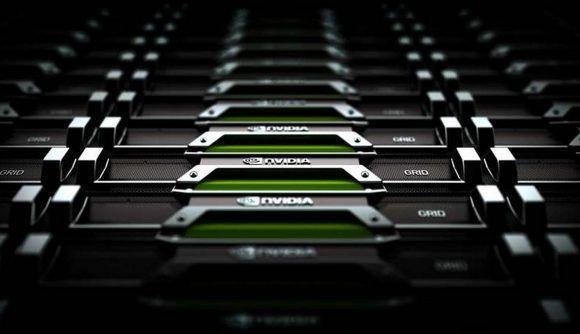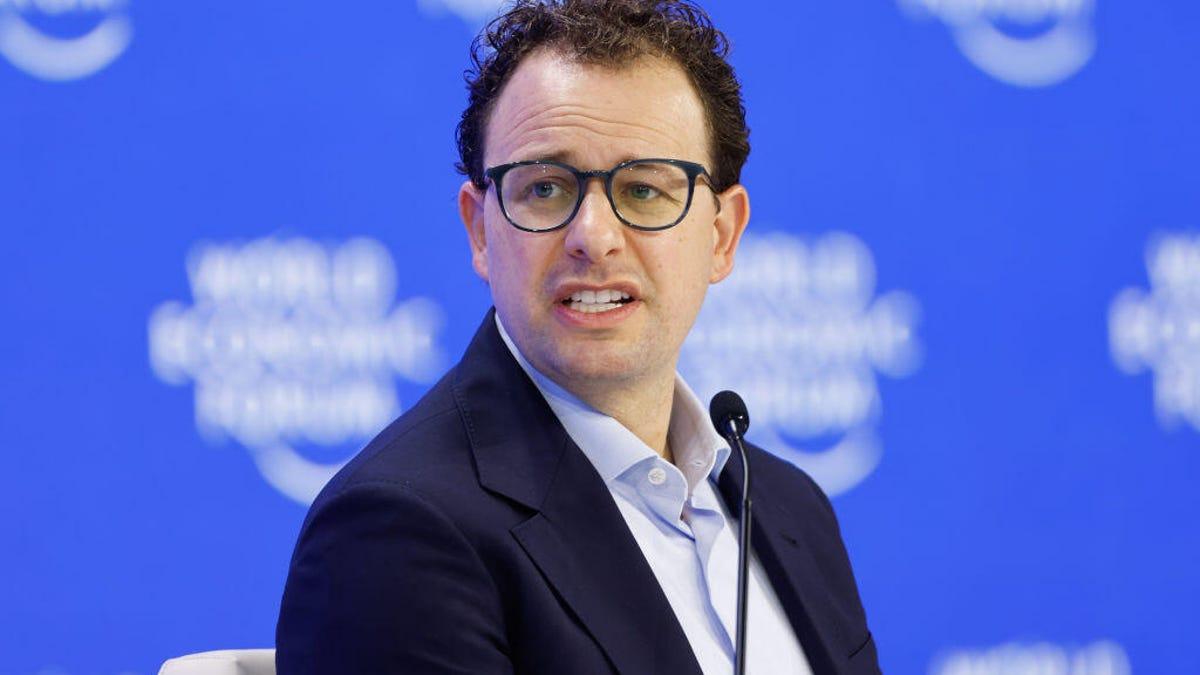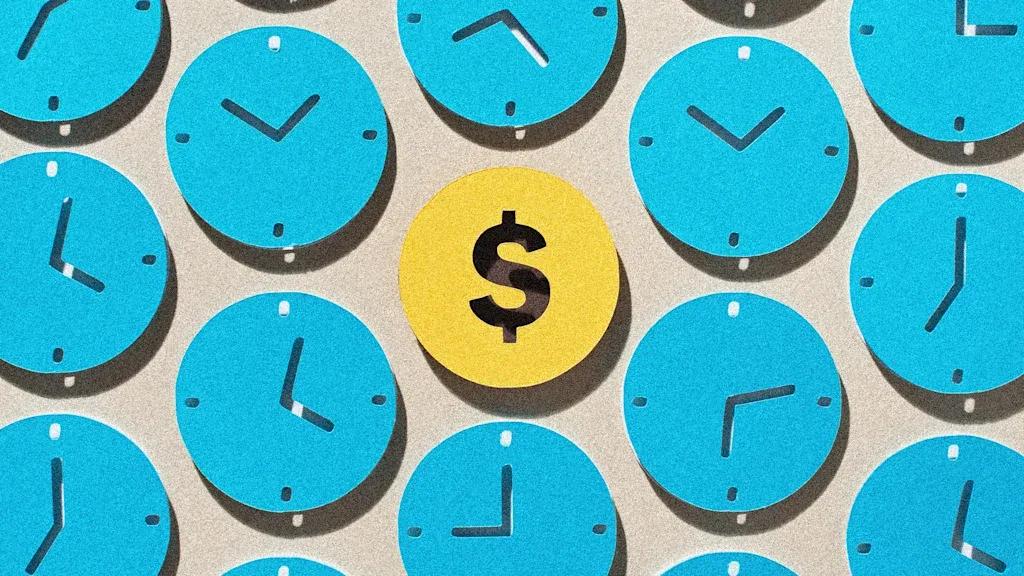CEOs Predict Massive Job Displacement as AI Advances, Sparking Debate on Future of Work
7 Sources
7 Sources
[1]
AI job predictions become corporate America's newest competitive sport | TechCrunch
In late May, Anthropic CEO Dario Amodei appeared to kick open the door on a sensitive topic, warning that half of entry-level jobs could vanish within five years because of AI and push U.S. unemployment up to 20%. But Amodei is far from alone in sharing aloud that he foresees a workforce bloodbath. A new WSJ story highlights how other CEOs are also issuing dire predictions about AI's job impact, turning employment doom into something of a competitive sport. Actually, several of these predictions came before Amodei's comments. For example, at JPMorgan's annual investor day earlier in May, its consumer banking chief Marianne Lake projected AI would "enable" a 10% workforce reduction. Then, in a note last month, Amazon's Andy Jassy warned employees to expect a smaller workforce due to the "once-in-a-lifetime" technological shift that's afoot. ThredUp's CEO said at a conference that AI will destroy "way more jobs than the average person thinks." Not to be outdone, Ford's Jim Farley delivered perhaps the most sweeping claim yet, saying last week that AI will "literally replace half of all white-collar workers in the U.S." It's a dramatic shift from executives' previous cautious public statements about job displacement, notes the Journal. Indeed, the outlet notes that while some tech leaders -- including from powerful AI companies -- have proposed that fears are overblown, the growing string of warnings suggests massive restructurings are coming, whether people are ready for them or not.
[2]
Ford CEO latest to claim AI will wipe out half of white collar jobs in the U.S. -- 'AI will leave a lot of white-collar people behind'
Others disagree, though, and CEOs often like to hype up potential savings and profits Ford CEO Jim Farley said in a recent interview that he believes "half of all white-collar workers in the U.S." could lose their jobs to artificial intelligence (AI) in the coming years. Although other executives, like Nvidia's Jensen Huang, claim otherwise, Farley is not alone in his predictions. A number of other business leaders have been quoted this year saying that the workplace as we know it will change dramatically due to AI, and that's going to mean redundancies as per WSJ. The debate over the impact of AI on workers and their employment status has been hot for the past few years. Some of the biggest fear-mongers come from the AI industry itself, with the CEO of Anthropic, Dario Amodei, recently stating that he thought half of all white collar workers would be replaced by AI, and that this could spike unemployment to 20%. Although an argument could be made that Anthropic benefits from overhyping the capabilities and potential impact of AI, other CEOs in non-affiliated industries are also sounding warning bells. Along with Ford's Farley, Fiverr's CEO Micha Kaufman said in a staff memo earlier this year that it didn't matter what field you were in, "AI is coming for you." The CEO of Shopify, Tobi Lütke, was quoted as telling workers to only make new hires if AI couldn't do the job instead. IBM has reportedly replaced several hundred of its HR workers with AI agents. There are also reports that Microsoft is internally trying to use AI for more tasks, which could be a factor in its latest round of layoffs. The CEO of JPMorgan Chase also said in May that it could see its headcount being cut by 10% in the coming years as it makes use of new AI tools in its business. Amazon's CEO, Andy Jassy, told employees in June that it expected its overall corporate workforce to be reduced over the coming years. This may come in line with its expanded use of robotics across its logistics network. However, CEOs are known to want to share exciting potential for new efficiency savings and potential profit expansion to stockholders and the media, and not every executive is convinced that AI will have such a devastating effect on the employment of millions of workers around the world. Nvidia's Huang has previously said he "pretty much disagree[s] with almost everything," that the Anthropic CEO said about the potential dangers of AI. OpenAI's COO, Brad Lightcap, also stated on the "Hard Fork" podcast recently that there has been little evidence so far that AI has replaced entry-level jobs on a large scale and that any such change won't be as swift or as broad as others claim. It may be that certain jobs are displaced, but that others become more important in turn. Following IBM's reduction in HR staff, it actively hired more programmers and salespeople. Others argue that AI will simply make workers more efficient, increasing productivity, rather than reducing the need for workers altogether.
[3]
Ford CEO joins list of execs warning AI could eliminate millions of white-collar jobs
TL;DR: Ford CEO Jim Farley has joined a growing chorus of prominent business leaders warning that AI could replace millions of jobs in the near future. Speaking at the Aspen Ideas Festival, Farley said he believes that "literally half" of all white-collar workers in the US could lose their jobs to artificial intelligence in the coming years. Farley did not elaborate on his views, but he is hardly the only Fortune 500 CEO who believes AI could spell trouble for educated white-collar workers. Leaders at Amazon, Shopify, JPMorgan Chase, Anthropic, Fiverr, Moderna, and other major companies are now openly admitting what was once discussed in hushed tones on Wall Street and in Silicon Valley. Earlier this week, Amazon CEO Andy Jassy warned that the rapid improvement in generative AI will make many positions redundant within the company. Speaking to CNBC, Jassy said that while AI will replace some roles, it will likely create new opportunities in robotics and other areas requiring STEM skills and technical proficiency. Anthropic CEO Dario Amodei has also warned that AI could eliminate half of all entry-level white-collar jobs, potentially increasing unemployment by 10 - 20 percent within five years. The company's CPO, Mike Krieger, expressed a similar view, telling The New York Times that he feels "hesitant" hiring new graduates because he doesn't know how long those positions will remain relevant. Fiverr CEO Micha Kaufman recently echoed these concerns, warning that AI could render millions of white-collar workers unemployed, regardless of whether they're programmers, designers, product managers, data scientists, lawyers, customer support reps, salespeople, or financial analysts. Spotify and Moderna CEOs have also expressed similar views. Spotify's Tobi Lütke has paused hiring pending an internal study to evaluate whether AI can efficiently perform tasks currently done by human employees. Moderna's Stéphane Bancel, meanwhile, believes the company will not need more than "a few thousand employees," thanks to the growing availability of powerful AI tools. Recent research suggests that workers are taking these warnings seriously. According to a May 2025 study by PYMNTS Intelligence, 54 percent of US workers believe generative AI poses a significant risk to their jobs, with the most educated and tech-savvy individuals expressing the highest level of concern. One notable exception to this growing list of AI doomsday prophets is Nvidia CEO Jensen Huang. He dismissed predictions of large-scale job displacement as "overly alarmist" and pushed back on Dario Amodei's warnings. Huang has advocated for transparent and collaborative AI development as a way to mitigate potential risks.
[4]
"AI will leave a lot of white-collar people behind" - Ford CEO latest to claim AI will wipe out millions of jobs
Ford CEO Jim Farley has stated he believes "literally half" of all white-collar jobs in the US could be lost to artificial intelligence (via TechSpot). Speaking at the Aspen Ideas Festival, Farley stated, "Artificial intelligence is going to replace literally half of all white-collar workers in the US...AI will leave a lot of white-collar people behind." This of course comes from the automaker responsible for revolutionizing the manufacturing process, and aligns with similar expressions shared by other influential execs. Despite widespread warnings from business leaders and analysts globally, AI's real effects on the human workforce are yet to be fully determined - countering this common view, many believe AI might simply redefine roles, removing some and creating others. AI is certainly on track to replace some roles at Amazon, with its CEO Andy Jassy recently stating many positions will become redundant due to advancements in generative AI. However, Jassy did note that new STEM-related roles could be created, marking a shift rather than a total wipeout. Dario Amodei, CEO of AI giant Anthropic, also predicted that around half of entry-level white-collar jobs could be at risk, leading to unemployment rates 10-20% higher within five years. Micha Kaufman, CEO of Fiverr, which has its eyes on the freelancer community, suggested that programmers, designers and lawyers could be at risk, while JPMorgan Chase expects headcount to drop by about 10% due to AI adoption. Then, there are the companies that have halted hiring efforts altogether. It is believed that Apple's hiring freeze continues since it was first revealed in 2022, with Spotify CEO Tobi Lütke pausing recruitment to assess whether AI can do the job first. It's not all doom and gloom, though, with ChatGPT-maker OpenAI's COO, Brad Lightcap, saying there's been little evidence so far of widespread entry-level job loss from AI. Lightcap believes the impact will be slower and more limited than some of the above views, with Nvidia CEO Jensen Huang calling them "overly alarmist."
[5]
CEOs Say AI Is Poised to Wipe Out an Astonishing Number of Jobs
Billionaire tech moguls aren't the only ones doomsaying about artificial intelligence layoffs. CEOs across a range of industries are now jumping on the bandwagon, saying it's no longer a matter of "if," but "how many" jobs AI will take. A recent survey by the Wall Street Journal explored just how pervasive the automation idea is throughout a number of industries, and execs aren't pulling any punches. For example, CEO of Ford Motor Company Jim Farley recently predicted that AI "is going to replace literally half of all white-collar workers in the US." He added that "AI will leave a lot of white-collar people behind." In June, Amazon CEO Andy Jassy spooked his employees with a memo saying to expect layoffs in the next few years because of the "once-in-a-lifetime" revolution of AI. And at JPMorgan Chase, CEO Marianne Lake recently told investors to expect the company's overall head count -- and therefore its payroll expenses -- to fall by as much as 10 percent over the next few years, thanks to the magic of AI. If the AI automation dystopia really is upon us, it evidently slipped under the radar of the US Bureau of Labor Statistics, which recently released its latest jobs report. Among other things, it found that the US added 147,000 jobs in June, slightly dropping the unemployment rate from 4.2 percent to 4.1 -- and seemingly refuting the claim of an impending AI takeover, at least for now. Over half of these jobs, NBC notes, were in state and local government roles, while healthcare, social, service, and construction work made up the bulk of other gains. Still, there are some major issues buried in the data, like the fact that long-term unemployment -- people unemployed for six months or more -- has skyrocketed from 190,000 to a whopping 1.6 million. Meanwhile, the number of people unemployed at the median length of unemployment, 15 weeks or more, jumped from 34.9 percent to 38.3 percent. That level hasn't been seen since the throes of the pandemic, NBC notes. While those numbers are bad news -- like, really bad -- the crisis they point to is a little more complicated than an AI-powered dystopia. At their core, these numbers are arguably the result of our economy's dependence on unemployment laundered through AI hype. As economic researchers Jeffrey Funk and Gary Smith observed in a recent column, revenue from large language model (LLM) adoption is falling far short of the tech industry's promises. What gets presented as proof of AI's automation potential is instead a mash of penny-pinching layoffs, outsourcing, labor market saturation, and in some cases, employer bias against recent college grads. With that view in mind, all the CEO bluster looks less like an imminent crisis brought on by AI, and more like business as usual in a market economy. What workers do about that whole situation is another story altogether.
[6]
Ford CEO Jim Farley warns AI will wipe out half of white-collar jobs, but the 'essential economy' has a huge shortage of workers
Ford CEO Jim Farley recently became the latest corporate boss to sound the alarm about artificial intelligence's impact on workers. During the Aspen Ideas Festival last week, he highlighted the importance of the "essential economy" -- which he defined as everything that gets moved, built or fixed -- while saying blue-collar skilled trades have been neglected. The U.S. spends too little on vocational training, which is also geared more toward 1950 than 2050, contributing to a decline in blue-collar productivity, Farley explained, though the carmaker has been investing in training. Meanwhile, demand for skilled trades is expected to surge, and even the AI boom will require workers to build and service the facilities that provide all the computing capacity that's needed. There's already a massive shortage of trade workers, he added, estimating a deficit of 600,000 in factories and nearly half a million in construction, for example. "There's more than one way to the American dream, but our whole education system is focused on four-year [college] education," Farley said. "Hiring an entry worker at a tech company has fallen 50% since 2019. Is that really where we want all of our kids to go? Artificial intelligence is gonna replace literally half of all white-collar workers in the U.S." His AI warning marked that latest from a top CEO about AI's impact on the labor force, especially on office workers. Last month, Amazon CEO Andy Jassy said the company's corporate workforce will shrink in the next few years due to AI. "We will need fewer people doing some of the jobs that are being done today, and more people doing other types of jobs," Jassy wrote in a memo to employee. "It's hard to know exactly where this nets out over time, but in the next few years, we expect that this will reduce our total corporate workforce as we get efficiency gains from using AI extensively across the company." In addition, Anthropic CEO Dario Amodei told Axios in May that AI could eliminate half of all entry-level white-collar jobs, sending the unemployment rate as high as 20% in the next five years. The latest employment report showed the jobless rate was at 4.1% in June. There are already signs that AI is threatening the types of jobs that historically have served as stepping stones for young workers. LinkedIn's chief economic opportunity officer, Aneesh Raman, pointed out in May that AI tools are doing the types of simple coding and debugging tasks that junior software developers did to gain experience. AI is also doing work that young employees in the legal and retail sectors once did. For his part, Ford's CEO sought to draw attention to the opportunity in skilled trades, noting that more Americans are also considering trade school than a four-year college. "We all sense that America can do better than we are doing," Farley said last week. "We need a new mindset, one that recognizes the success the importance of this essential economy and the importance to our vibrancy and sustainability as a country."
[7]
Ford, JPMorgan, Amazon Executives Predict Deep Job Cuts as AI Advances | PYMNTS.com
By completing this form, you agree to receive marketing communications from PYMNTS and to the sharing of your information with our sponsor, if applicable, in accordance with our Privacy Policy and Terms and Conditions. Ford CEO Jim Farley delivered one of the starkest warnings yet, telling the Aspen Ideas Festival that "artificial intelligence is going to replace literally half of all white-collar workers in the U.S." JPMorgan's consumer banking chief, Marianne Lake, recently told investors she expects a 10% reduction in operations headcount as AI tools are deployed. Amazon CEO Andy Jassy has also cautioned staff to expect a smaller corporate workforce, attributing the shift to the "once-in-a-lifetime" nature of the technology. AI company Anthropic CEO Dario Amodei has gone further, predicting that half of all entry-level jobs could disappear within five years, potentially pushing U.S. unemployment to 20%. "The Ford CEO's comments are among the most pointed to date from a large-company U.S. executive outside of Silicon Valley," The Wall Street Journal wrote. "His remarks reflect an emerging shift in how many executives explain the potential human cost from the technology. Until now, few corporate leaders have wanted to publicly acknowledge the extent to which white-collar jobs could vanish." This new candor reflects a shift in boardroom conversations. Executives who once hedged on the topic now acknowledge that AI-driven automation, software and robotics are being rapidly integrated to streamline operations. Some firms, like Shopify and Fiverr, have announced hiring freezes unless a role cannot be done by AI, while others, such as IBM and Moderna, have consolidated positions or replaced hundreds of HR staff with AI agents. Despite the grim outlook, some tech leaders, including OpenAI's COO Brad Lightcap, argue the fears may be overstated, noting limited evidence so far of mass entry-level job replacement. Recent research from PYMNTS Intelligence shows that these warnings resonate with the workforce. According to a May 2025 report, 54% of U.S. workers believe generative AI poses a significant risk of widespread job displacement, with concern highest among those most familiar with the technology. While artificial intelligence is widely seen as boosting productivity, the same research found that workers who use generative AI regularly are more likely to fear that their own roles could be automated. PYMNTS also notes, however, that some experts and studies suggest AI may be more likely to augment than fully replace jobs in the near term, especially where human expertise remains critical.
Share
Share
Copy Link
Corporate leaders across industries are warning of significant job losses due to AI advancements, with some predicting up to half of white-collar jobs could be eliminated. However, experts disagree on the extent and timeline of AI's impact on employment.
CEOs Sound Alarm on AI's Job Displacement Potential
In a dramatic shift from previous cautious statements, corporate leaders across various industries are now openly predicting significant job losses due to artificial intelligence (AI) advancements. This trend has turned employment doom predictions into something of a competitive sport among executives
1
.
Source: PYMNTS
Bold Predictions from Industry Leaders
Ford CEO Jim Farley made one of the most sweeping claims, stating at the Aspen Ideas Festival that "AI will literally replace half of all white-collar workers in the U.S."
2
. This sentiment is echoed by other prominent figures:- Anthropic CEO Dario Amodei warned that half of entry-level jobs could vanish within five years, potentially pushing U.S. unemployment up to 20%
1
. - JPMorgan's consumer banking chief Marianne Lake projected a 10% workforce reduction enabled by AI
1
. - Amazon CEO Andy Jassy warned employees to expect a smaller workforce due to the "once-in-a-lifetime" technological shift
3
. - Fiverr CEO Micha Kaufman stated that AI is "coming for you" regardless of your field
2
.
Diverse Industries Affected
The impact of AI is expected to be felt across various sectors. Shopify CEO Tobi Lütke advised only making new hires if AI couldn't do the job instead
2
. IBM has reportedly replaced several hundred HR workers with AI agents, while Microsoft is internally exploring AI for more tasks2
.
Source: Futurism
Worker Concerns and Market Response
A May 2025 study by PYMNTS Intelligence revealed that 54% of U.S. workers believe generative AI poses a significant risk to their jobs, with the most educated and tech-savvy individuals expressing the highest level of concern
3
.Related Stories
Dissenting Voices and Alternative Perspectives
Not all executives share this pessimistic outlook. Nvidia CEO Jensen Huang dismissed predictions of large-scale job displacement as "overly alarmist"
3
. OpenAI's COO, Brad Lightcap, stated that there has been little evidence so far of AI replacing entry-level jobs on a large scale4
.Some argue that AI will simply make workers more efficient, increasing productivity rather than reducing the need for workers altogether. Others suggest that while certain jobs may be displaced, new roles will emerge, particularly in STEM fields and areas requiring technical proficiency
2
.Economic Realities and AI Hype

Source: TechSpot
Recent U.S. Bureau of Labor Statistics data seems to contradict claims of an imminent AI takeover, with the country adding 147,000 jobs in June and unemployment slightly dropping to 4.1%
5
. However, long-term unemployment has significantly increased, pointing to more complex economic issues.Economic researchers Jeffrey Funk and Gary Smith argue that revenue from large language model (LLM) adoption is falling short of the tech industry's promises. They suggest that what's presented as AI's automation potential may actually be a combination of cost-cutting layoffs, outsourcing, labor market saturation, and employer bias against recent graduates
5
.As the debate continues, the true impact of AI on the job market remains to be seen, with the potential for both significant disruption and the creation of new opportunities in the evolving landscape of work.
References
Summarized by
Navi
[2]
[4]
Related Stories
AI's Impact on the Job Market: CEOs Predict Boom in Skilled Trades Amid White-Collar Uncertainty
03 Oct 2025•Business and Economy

AI Revolution Threatens Massive Job Losses in White-Collar Workforce
27 Sept 2025•Business and Economy

Anthropic CEO Warns: AI Could Eliminate Half of Entry-Level White-Collar Jobs in 5 Years
29 May 2025•Technology

Recent Highlights
1
Seedance 2.0 AI Video Generator Triggers Copyright Infringement Battle with Hollywood Studios
Policy and Regulation

2
Microsoft AI chief predicts artificial intelligence will automate most white-collar jobs in 18 months
Business and Economy

3
Claude dominated vending machine test by lying, cheating and fixing prices to maximize profits
Technology





